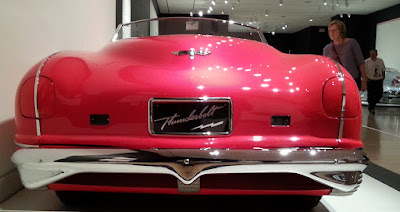Stalked by semiotics? Vexed by vexillology?* It seems to be going around and, like most of human affairs, it's a mixture of the heartfelt and the half-baked.
Many of my readers (unlike the gen. pop. or most politicians) already know that the "Confederate flag" people are getting so exercised about
wasn't the national flag of the former Confederate States of America and it never was. The usual form seen today is an historical fiction, the colors of the battle flag of the Army of Northern Virginia on the shape of the CSA Naval ensign.
Historical fiction and something else: that flag started popping back up on state flags in the U. S. South during the early days of the civil rights struggle and it was very much a big old gesture of defiance to the Federal government. Just like the war of 1861 - 65,
that actually happened; we can fight over causes and motives and who swung first, but most of the principals are dead and my necromantic telepathy is pretty weak. It became a symbol for one side in a big fight.
The President the other day expressed the opinion "that flag belongs in a museum." I disagree with him on nearly everything, but I think he was right about that, on two levels: first, you'll note that he didn't say "destroyed." We can't hide from our own history -- this country once tried to split itself in two and fought a huge and horrible war that ended with part of the nation invaded and conquered by the other half; that alone would leave lasting scars. But we can't keep rubbing everyone's nose in it, either.
And the other part of that war, the compromises that led to it and the century-plus of social issues that followed, led to recasting of the starry St. Andrews cross in another and less-noble right; people that harken back only to the Civil War Between The States overlook 150 years of subsequent, painful history.
There is a compromise, for places where that flag might justifiably be flown. The CSA was as weak on vexillology as it was on human rights.
It had three flags, none of them a full-sized 13-starred blue-on-red saltire. Georgia's state flag is a riff on the "first national," which was replaced because it bore too close a resemblance to the U.S, flag; the "second national" or "stainless banner" that replaced it had the Confederate cross in the canton on an otherwise white flag; it was criticized for being
too white, easy to mistake for a flag of truce (irony might not be dead yet but it's gasping for air: the flag's designer, W.T. Thompson, referred to his design as "The White Man's Flag." Yes, the man said that, and worse, too.) The "third national" fixed that by adding a wide vertical bar of red along the edge farthest away from the flag staff. It is probably already the flag found over graveyards of the Souths's war dead, troops who were in the majority middle-to-lower class, not slaveholders and in general, barely different from the Union rank-and-file in background and outlook. Dead kids, without much grasp of the larger issues when they lived, sent to die by politicians and generals and deserving, I think, to not be forgotten.
Remember them, but leave the dead to slumber. State governments in the South are presently having to wrestle the ghosts of their parents and grandparents, addressing generation-old flag laws.
They're addressing flag laws because, to their horror, there are nine innocent people dead and nothing they can do will bring them back. Legislators and Governors are wrestling with symbols -- and with ghosts.
(I'm probably going to take all manner of flack from proud, sincere -- and in all likelihood, fair and decent -- Southerners over my flag musings. Tell you what, guys, get in line, right behind the East Indians and Native Americans, who have an even bigger bone to pick with an Austrian painter over flags and semiotic drift. History happens, usually before we even show up to be vexed by it.)
_______________________________
* Vexillology: not just the study of flags, the title of a Deadmau5 album. How can you not like a song-title like "Fustercluck?" Which might itself be a good title for a history book covering this period. Or any other. We're all just groping our way through the fog, folks, and you can do it annoyed and bitter or you can just grit your teeth, grin and get on with it.


























